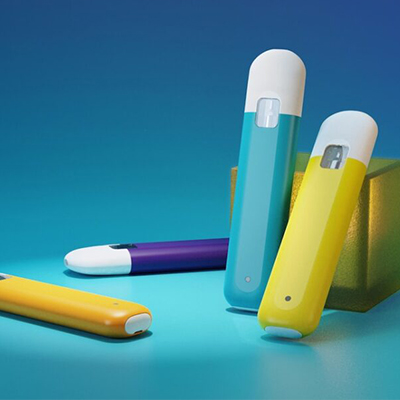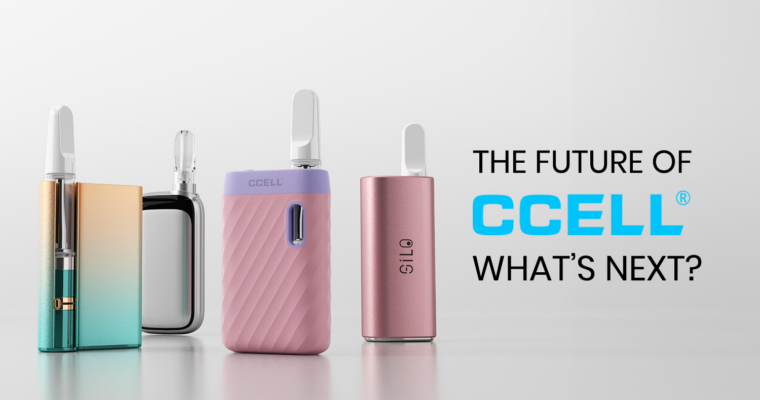Tetrahydrocannabivarin (THC-V) is one of over 100 naturally occurring cannabinoids in the cannabis plant. Although it’s similar to the better-known cannabinoid Delta-9 THC in structure, its psychoactive effects are far less pronounced. That has led to cannabis strains high in THC-V being given the nickname “diet weed.” Unlike some recently popular cannabinoids such as HHC-O and THC-P, THC-V has been known for much longer. Researchers have studied THC-V for a while in an attempt to determine whether it has any potential benefits, and some of the results have been fairly promising.
THC-V is available in a wide variety of different products ranging from pre-filled vape cartridges to oral products like gummies, and it’s often used in blends with other cannabinoids such as Delta-8. No matter what your personal needs are, you should have no trouble finding a THC-V product that’s a perfect fit.
If you’re among the many cannabis aficionados who want to know what THC-V is and what benefits it may have, this guide is for you. In it, we’re going to discuss what THC-V is and shed some light on the potential benefits of THC-V that researchers have discovered. Let’s learn more.
What Kind of Cannabinoid is THC-V?
THC-V is homologous to Delta-9 THC, which means that the portions of the two molecules that determine their primary effects are the same. When comparing THC vs. THC-V, the difference is in the lengths of the molecules’ carbon side chains. Delta-9 and Delta-8 THC have side chains consisting of five carbon atoms. THC-V, meanwhile, has a propyl group – which means that the side chain consists of three carbon atoms.
Anecdotal evidence suggests that a THC molecule with a longer carbon side chain may be more potent. THC-P, for instance, has a side chain consisting of seven carbon atoms, which is thought to greatly increase its potency. User reports suggest, meanwhile, that the shorter side chain of THC-V seems to make it significantly milder than Delta-9 THC. However, research also seems to suggest that THC-V behaves slightly differently from THC in the way that it interacts with the body’s cannabinoid receptors. The different behavior contributes to potentially different effects, and we’ll discuss those next.
What Are the Effects of THC-V?
Although the THC-V molecule has the same active component as Delta-9 THC, it is significantly milder in that you may experience no psychoactive effects at all with THC-V unless you consume it in large doses. Note, however, that the borderline non-psychoactive nature of THC-V is only true if you consume it in isolation from other cannabinoids. As we mentioned above, many products use THC-V in combination with more psychoactive cannabinoids such as Delta-8 THC. You shouldn’t assume that a particular THC-V product will have little or no psychoactive effect unless you know its exact cannabinoid content.
THC-V does begin to produce mild psychoactive effects in larger amounts, with people generally saying that it leaves them feeling energized, motivated, uplifted and sociable. If you consume THC-V in isolation, you’re unlikely to ever experience the powerfully sedating full-body high that can sometimes occur with the consumption of other forms of THC in large doses.
In addition to its milder psychoactive properties compared to Delta-9, THC-V seems to partially block the activity levels of the CB-1 endocannabinoid receptors in the brain – whereas Delta-9 stimulates those same receptors. That may contribute to the purported effects of THC-V on bodily functions such as appetite and blood sugar levels. We’ll discuss those in greater detail shortly.
In addition to those effects, a 2010 study on rodents published in the British Journal of Pharmacology suggests that THC-V has the potential to reduce inflammation and inflammatory pain response. A 2007 study published in Calcified Tissue International suggests that THC-V may help to stimulate collagen production and bone marrow growth. Although these and other studies on the effects of THC-V are a long way from proving any benefit for humans, they certainly show that this cannabinoid merits further examination.
What Are the Effects of THC-V on Appetite and Blood Sugar?
For many years now, the world has faced a growing obesity crisis with no obvious solution. Being overweight contributes to a variety of long-term health problems such as heart disease, high blood pressure and elevated blood sugar levels. Over time, those problems reduce quality of life and increase the likelihood of untimely death. Prescription medications for obesity and diabetes, meanwhile, are limited in their effectiveness and often cause unwanted side effects of their own.
An article published in the Journal of Cannabis Research in 2020 suggests that THC-V could potentially play a helpful role in the battle against obesity. Studies have shown that THC-V appears to decrease appetite levels in rodents by making them feel full sooner. THC-V also seems to lower blood sugar levels, which means that it could potentially play a helpful role for people who have difficulty metabolizing and managing glucose.
What Are the Side Effects of THC-V?
There is little clinical data on the side effects of THC-V since few human studies have been conducted. In the studies that do exist, THC-V dosages of up to 10 mg per day were administered for up to 13 weeks with no major side effects reported other than light drowsiness.
It’s important to remember, though, that these studies examined THC-V for its potential therapeutic uses and didn’t examine the potential side effects of recreational THC-V use at all. If you use THC-V in very high doses – or use it in conjunction with other cannabinoids – to experience psychoactive effects, you may experience short-term negative side effects with THC-V that would be similar to the effects of overconsuming Delta-9 THC. After overconsuming Delta-9, people most commonly report side effects such as dry mouth, red eyes, nausea, anxiety and paranoia.
You should also consider the effect that THC-V may have on appetite, which may not be desirable for all people. If appetite reduction isn’t one of your health goals, it’s possible that THC-V may not be the ideal cannabinoid for you.
THC-V FAQs
If you still have questions about THC-V after reading this article, we’ve got you covered. In this section of our THC-V guide, we’ll use simple and direct language to answer the most common questions about this cannabinoid.
What Is THC-V?
THC-V is a minor cannabinoid with a molecular structure similar to that of Delta-9 THC. While Delta-9 has a side chain consisting of five carbon atoms, THC-V has a side chain with three carbon atoms. The shorter side chain may contribute to milder psychoactive effects and some potential benefits.
Does THC-V Get You High?
In lower doses, THC-V has little to no psychoactive effect. However, it may produce mild uplifting and euphoric effects when used in very high doses or in conjunction with other cannabinoids.
How Strong Is THC-V?
THC-V doesn’t produce a strong effect in lower doses and isn’t widely thought of as a recreational cannabinoid. Recreational products are likely to use THC-V in combination with more strongly psychoactive cannabinoids such as Delta-8 THC.
Does THC-V Help Weight Loss?
Rodent studies have produced results suggesting that THC-V may help to control appetite and reduce blood sugar levels. However, there have been no clinical trials conducted to prove or disprove this effect in humans.
What Are the Benefits of THC-V?
People who use THC-V primarily do so for its purported therapeutic benefits rather than for recreational purposes. Some of the potential benefits of THC-V may include reduced inflammation, increased collagen production, increased bone growth, decreased appetite and decreased blood sugar levels.
Is THC-V Legal?
THC-V is legal from a federal standpoint if it is extracted from industrial hemp with a Delta-9 THC content below 0.3 percent. It is also legal in most states but may not be legal in states that have banned it specifically or have banned all forms of THC.
Final Thoughts on THC-V
As the hemp processors of the world develop ways to extract and isolate different cannabinoids, scientists will have more opportunities to study those cannabinoids and find out what their potential benefits are. That’s exactly what has happened with THC-V. As you’ve learned from reading this guide, small-scale studies on rodents have produced results suggesting that THC-V could have a variety of positive effects on the body. Although no studies have been conducted to confirm that THC-V has those same benefits for humans, that hasn’t stopped people from trying it anyway.
As an added benefit for those who enjoy cannabinoids for recreational use, THC-V also produces mildly euphoric effects when it’s consumed in higher doses. Some producers of cannabis products pair THC-V with more psychoactive cannabinoids such as Delta-8 THC to enhance the recreational effects.
The fastest way to get any cannabinoid into your system is by inhaling it. For that reason, vape oils and pre-filled vape cartridges are some of the most common things that you’ll find when you look for THC-V products – and if you want to have the best possible experience, you need a vaping device that’s up to the task. Shop our selection of oil vaporizers and 510 vape batteries now.






